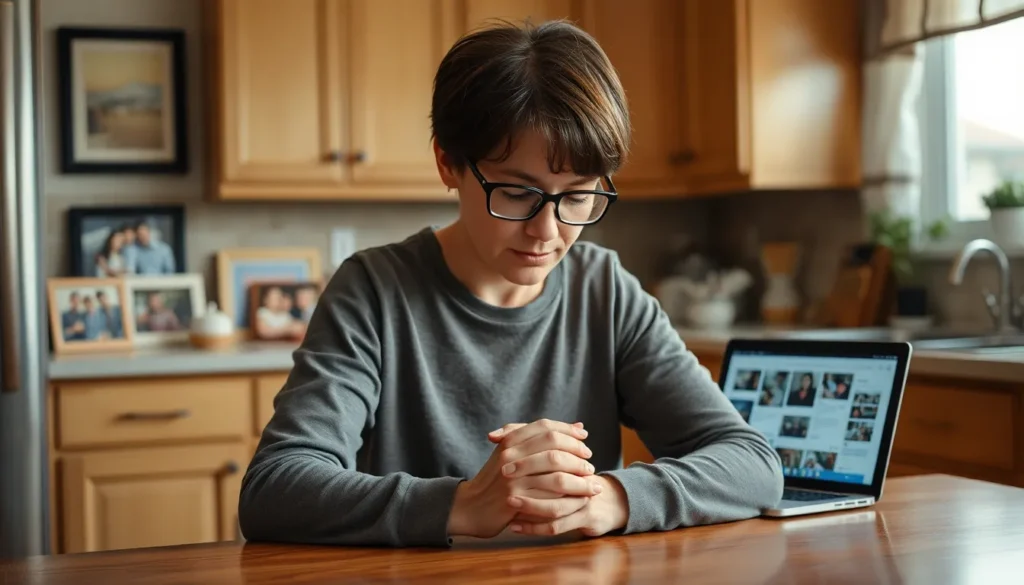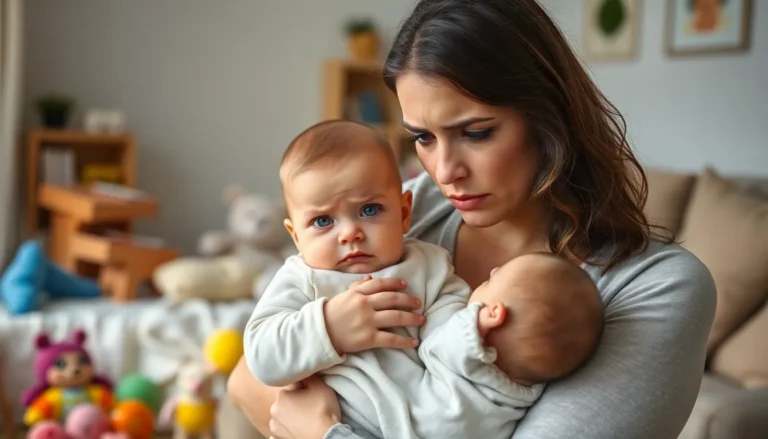In a world where everyone seems to have an opinion on vaccines, navigating the pressure can feel like trying to dance on a tightrope while juggling flaming torches. It’s no wonder people feel overwhelmed. Whether it’s family gatherings or social media rants, the pressure to conform can be intense, leaving many feeling like they’re stuck in a never-ending episode of a reality show gone wrong.
Table of Contents
ToggleUnderstanding Vaccine Pressure
Vaccine pressure affects many individuals as they navigate conflicting opinions and expectations. Understanding its roots and sources can help people manage these challenges effectively.
Definition and Context
Vaccine pressure occurs when individuals face intense expectations regarding vaccination decisions. This pressure often comes from various social circles, including family, friends, and the larger community. It can create a sense of urgency, leading individuals to evaluate their choices continuously. Social media platforms amplify these discussions, broadcasting opinions widely and adding complexity to personal decisions. In this context, a person may struggle to form their own viewpoint amid external influences.
Common Sources of Pressure
Many sources contribute to vaccine pressure, influencing individual choices. Family members frequently express strong opinions, reflecting their values or fears. Friends can also play a role, sharing personal experiences or sentiments that sway decisions. Public health campaigns, while informative, may evoke feelings of obligation to conform to societal standards. Social media serves as a significant platform where misinformation and polarized views dominate discussions, heightening the pressure to align with popular opinions. Community norms around vaccination practices also establish expectations, leading to further discomfort for those who hesitate.
Psychological Impact of Vaccine Pressure
Vaccine pressure exerts a significant influence on individuals’ mental health, creating feelings of anxiety and fatigue. The emotional strain often manifests in various ways.
Anxiety and Fear
Anxiety commonly arises from intense discussions about vaccines. Concerns about personal health and societal expectations contribute to heightened stress levels. Fear of judgment from family or friends can amplify these feelings. Many feel trapped in a cycle of worry, uncertain about the right choice. Social media amplifies anxiety, as contrasting opinions create confusion. Misinformation further fuels these fears, making it difficult to trust one’s instincts. Consequently, individuals may face constant self-doubt regarding their vaccination choices.
Decision Fatigue
Decision fatigue frequently impacts those dealing with vaccine pressure. Repeatedly evaluating choices becomes exhausting, leading to mental exhaustion. After facing numerous opinions, individuals may struggle to make informed decisions. Over time, this persistent evaluation can result in withdrawal or avoidance. People often feel overwhelmed by the need to justify their choices, which complicates the decision-making process. Notably, this fatigue may lead to a sense of helplessness, undermining the confidence required for a personal vaccination decision. Each external pressure adds to this weight, increasing the likelihood of defaulting to others’ opinions rather than relying on personal beliefs.
Strategies for Dealing with Vaccine Pressure
Addressing vaccine pressure requires effective strategies. These approaches help individuals navigate the complexities surrounding their vaccination choices.
Open Communication
Engaging in open communication fosters understanding. Discussing vaccine concerns with family and friends promotes clarity and alleviates anxiety. Sharing personal feelings allows individuals to express doubts and receive feedback. This dialogue keeps relationships strong and builds a support network. Listening actively to differing viewpoints can create mutual respect, even when opinions clash. Respectful conversations can reduce feelings of isolation and foster an environment of open dialogue. Clear communication helps dispel myths and misinformation that often circulate in social media and community discussions.
Seeking Support from Trusted Sources
Identifying trusted sources strengthens decision-making. Trusted health professionals can provide accurate information about vaccines. Using reliable community resources, such as local health departments and government websites, promotes informed choices. Engaging with vaccine advocates who align with personal values can reinforce confidence. Surrounding oneself with supportive individuals encourages a balanced perspective and reduces anxiety. Personal experiences shared in safe spaces can prove helpful as well. Joining local or online groups that prioritize factual conversations enables individuals to find encouragement, making it easier to navigate vaccine pressure effectively.
Navigating Social Situations
Navigating social situations amidst vaccine pressure requires a thoughtful approach. Many individuals face conflicting expectations from their social circles, which adds to the stress of decision-making related to vaccinations.
Managing External Expectations
Addressing external expectations involves recognizing the impact of family and friends on vaccination choices. Some individuals experience pressure from loved ones who strongly advocate for vaccination. Engaging in open conversations about these concerns can ease stress. Understanding that others’ opinions stem from care allows individuals to feel less isolated. Prioritizing personal values while considering outside influences fosters a balanced decision-making process.
Setting Personal Boundaries
Establishing personal boundaries is crucial for mitigating vaccine pressure. Defining limits regarding discussions about vaccination helps protect mental well-being. Individuals can clearly communicate comfort levels with friends and family about vaccine talks. Saying “I appreciate your concerns, but I prefer to keep this private” can create space for self-reflection. Reinforcing these boundaries aids in maintaining confidence in one’s decisions while navigating societal expectations.
Conclusion
Vaccine pressure can be a challenging experience that affects mental well-being and decision-making. By fostering open communication and seeking support from trusted sources individuals can navigate this complex landscape more effectively. Establishing personal boundaries allows for healthier discussions and protects against external stressors. It’s essential for individuals to prioritize their values and beliefs while managing societal expectations. Ultimately, taking proactive steps can empower individuals to make informed choices about vaccination without succumbing to undue pressure.





